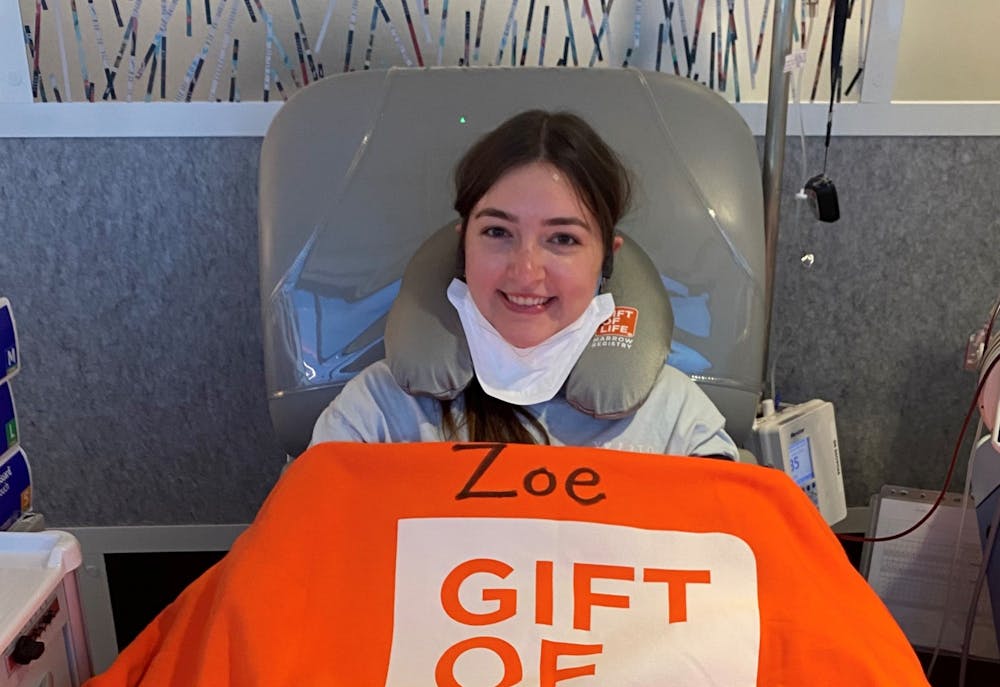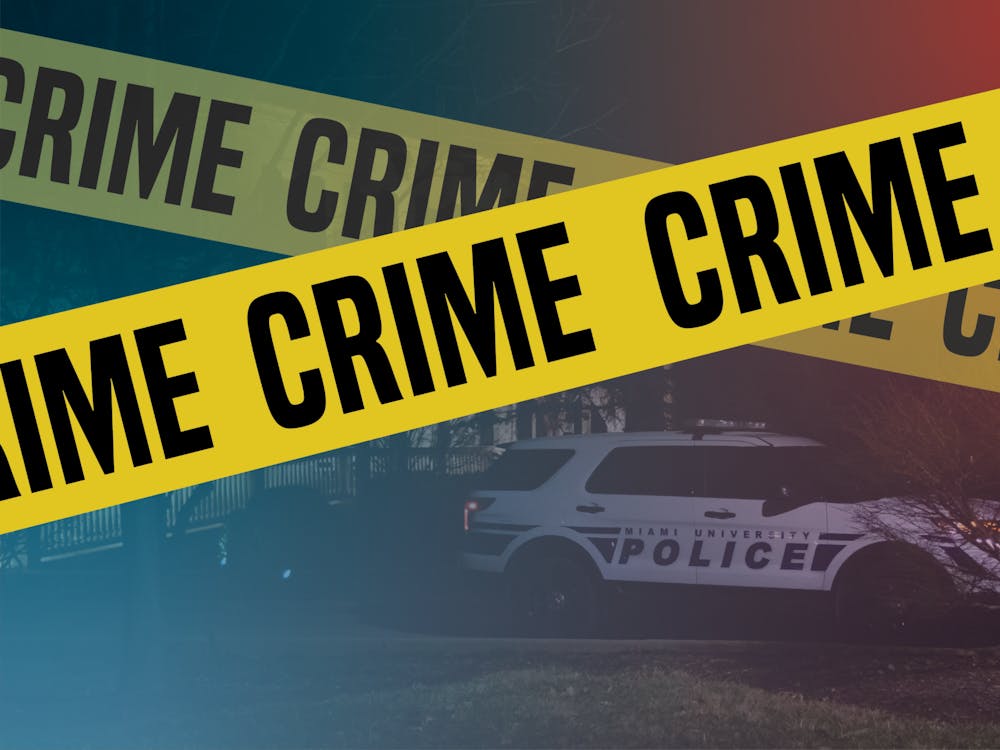One Miami University senior’s opportunity to get service hours turned into an unforgettable experience.
Zoe Kelley, a senior marketing and professional writing double major, was introduced to the Gift of Life Marrow Registry back in 2019 when two campus representatives came to one of her Zeta Tau Alpha (ZTA) chapter meetings.
Gift of Life is an organization that collects DNA samples to put together a registry of people that can donate stem cells and bone marrow to blood cancer patients. The samples are collected through cheek swabs.
Kelley said the representatives talked about the organization and what is expected if you swab and join the registry.
“I remember them saying to be certain that when you do swab your cheek you would be willing to go through with the donation because when there is a potential match, that gives the patient a lot of hope,” Kelley said. “They also assert that it’s a pretty slim chance you do get picked just because you have to be a perfect match to donate.”
According to Gift of Life’s website, a patient has a lifetime probability of one in 200 to receive a stem cell transplant.
During her chapter meeting, Kelley had both of her cheeks swabbed and sent back to the organization with her information.
After that, she didn’t think much of it. That is, until Oct. 2021, when she got a text saying she was identified as a potential match for a patient. Kelley said her immediate reaction was nervousness.
“I originally started to panic a little bit because I forgot I did [the swab], and also I have a fear of needles,” Kelley said.
Kelley said after talking with her friends and family about her worries, some of those concerns subsided, and she started to feel enthusiastic about donating.
“I’ve always believed in paying it forward and helping people wherever I can,” Kelley said. “I started to get excited because I [thought] this is somebody who I could potentially save their life.”
Her next steps were to fill out a questionnaire about her and her family’s health history, undergo a full physical exam and complete blood tests to confirm if she was the right match.
Enjoy what you're reading?
Signup for our newsletter
In early December 2021, she heard back that she was the perfect match for a patient.
This January, Kelley flew to Gift of Life’s collection center in Boca Raton, Florida, with her mom to go through the donation process.
Kelley had blood from her arm extracted to go through a machine that separates the blood into layers. Stem cells are removed, and the blood is put back into the body through a process called apheresis.
What was supposed to be a four to six hour procedure turned into ten hours because Kelley had some complications that caused her to lose mobility of both arms.
Then the machine broke, so Kelley had to wait for another donor to finish before completing her own donation. Despite the complications, Kelley got through the donation and flew home the next day.
Kelley said she was proud of herself after the procedure.
“It felt good to be able to do a good thing for somebody without expecting something out of it,” Kelley said. “It was a pretty intense process, but the reward at the end of knowing that you did give somebody a chance really outweighs any discomfort or anything I went through leading up to it.”
Since donating, Kelley has gone through training to do the swabs on others. She also helped organize another Gift of Life visit at a ZTA chapter.
Emily Lowhurst, a junior nursing major and ZTA’s philanthropy chair, said she wanted to have the event again because it’s a unique service opportunity.
“We’d love to bring it back, especially because we have about 120 chapter members who have never gotten swabbed before,” Lowhurst said. “If they feel comfortable putting their DNA on the registry, we’d love to have that happen, and maybe someone else will be a match.”
Ryan Bergen, a senior economics major, also went through the donation process and went on to become a campus representative. Bergen said people should join the registry because it is a quick and easy process.
“[It takes] five minutes to join, and it gives you that fulfillment of ‘I did something good, I joined this registry for people that need this help,’” Bergen said.
Kelley said if she had to give advice to someone worried about donating, she would tell them their concerns are valid but that donating is rewarding.
“[Be] kind to yourself,” Kelley said. “It’s okay to have worries and fears about it. The actual donation process itself can be difficult, but these are just a few small moments of discomfort for a pretty big thing that you’re doing. You’re going to feel really good after.”




